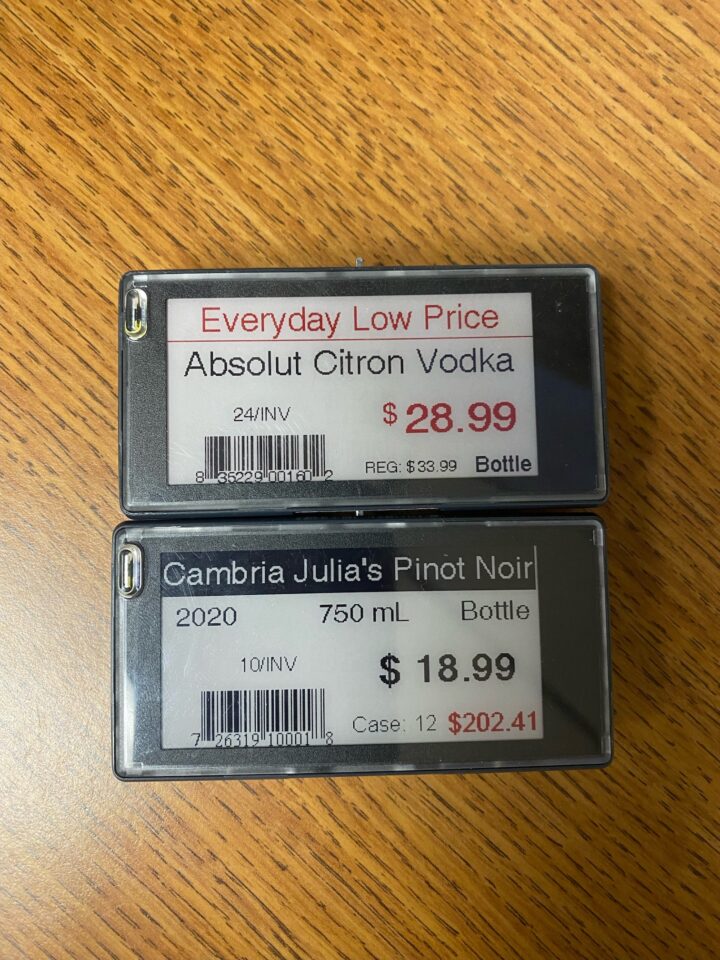
Beverage alcohol retailers are planning to capitalize this year on projected steady growth trends for Tequilas, Bourbons, and Irish whiskies, but spirits-based RTDs appear to be the catalyst poised to spearhead industry growth. These developments and the rapidly changing beverage alcohol landscape have retailers increasing their cooler space and investing in technology. Wilmington, Delaware-based Kreston Wine & Spirits recently expanded its Middletown location from 6,400 square feet to 11,200 square feet and is expanding refrigeration. “We kept our existing cooler and are adding a 17-door cooler,” says owner Bob Kreston. “With the growth of craft beers, hard seltzers, and canned cocktails, it’s nice to increase the variety that we offer chilled.”
Sales of spirits-based RTDs at the two Kreston stores were good in 2022 and continue to grow. “High Noon ($10 a six pack of 355-ml. cans), Crown Royal ($14 a six-pack of 12-ounce cans), Jack Daniels ($10 a six-pack of 12-ounce cans), and Cutwater ($13 a six-pack of 12-ounce cans) continue to grow even during the winter months,” Kreston says.
Kreston, which also has a Wilmington store, recently switched the company’s website platform to City Hive and computer software to mPower Beverage for its point-of-sale system. “We have things up and running,” Kreston says. “It gives us a lot of opportunities for promotions and a better way to reach our consumers and to grow our base. It has been a good fit so far. We got all new equipment, including printers, scanners, and computers.”

At Sal’s Beverage World’s three stores in the metro Chicago area, store owner Vince Liotta is testing electronic shelf tags, which will help alleviate the stress of the constant price changes. “The electronic price tags will automatically change as I raise prices in my system, similar to how my website works,” he says. “Old sale prices will turn off and return to regular prices and the new sale prices will turn on. We are seeing a huge number of price changes on the horizon, and I don’t think there is going to be any sign of stopping. Adding these tags will help us to match competitor sale prices instantly and also make sure our pricing in store is accurate.”
Liotta also plans to expand the beer cooler at his Addison store and convert it into a walk-in beer cave. “We will have a walk-in area with the top-20 selling beers in our cooler,” he says. “When we opened our newest store we put in a walk-in cooler and it has worked out great because on on Fridays and Saturdays you don’t have to have a worker in the cooler constantly putting 24-packs of Modelo ($31 a 24-pack of 12-ounce bottles) and Miller Lite ($19) into a cooler window.”
During the recent holiday season, Liotta observed strong trends for high-end mezcals and gins, including Glendalough Rose gin ($32 a 750-ml.) and Drumshanbo Gunpowder Irish gin ($32) and trading-up trends for wines. “Sales of California and Oregon wines in the $15-$20 price range, along with French and Italian around $20, should continue to grow,” he says.
In response, Liotta is preparing wine seminars for his employees who assist customers on the floor. “I want to make sure the staff is knowledgeable and able to answer questions for the ever-changing, smarter consumer,” he says.
Liotta and Kreston both reported strong Tequila sales in 2022, and it appears consumers in Illinois and Delaware can’t get enough hand-selected single-barrel Bourbons. “So far in 2023, I have already received and sold three hand-picked barrels that were actually supposed to ship in 2022,” Liotta says.
Kreston tries to get as many hand-selected single-barrel Bourbon offerings as he can for his stores. “People love them, and we do well with them,” he says. “We’ve created a nice following and clientele that gets excited when something new comes along. We do some in-store tastings. The following and demand for single-barrel Bourbons is amazing.”